Sony WH-1000XM5
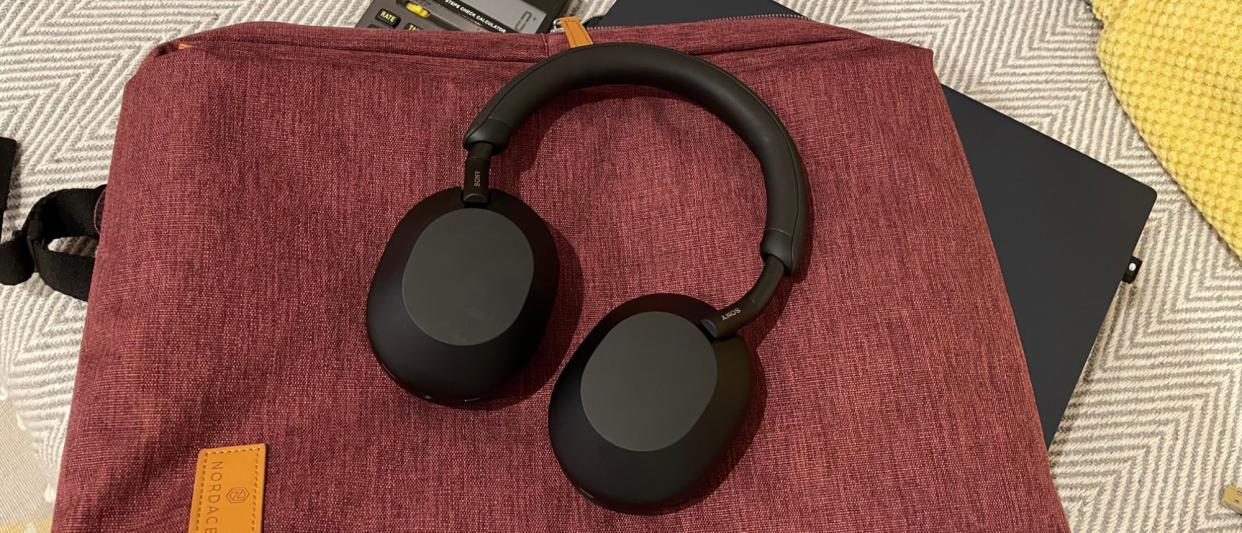
In recent years, Sony has struck upon a winning formula that has seen it build some of the best noise-cancelling headphones on the market. Each iteration has looked pretty similar to the last but it has been the gradual improvements in sound quality, noise-cancelling and call quality that have kept the WH-1000 line of headphones one step ahead of the competition.
So, when we saw the official pictures of the Sony WH-1000XM5, we were more than a bit surprised. We wondered whether it was a wise move to give one of Sony’s biggest success stories in recent memory a major redesign.
The drawing board has been well and truly dusted off for the latest iteration of its premium wireless ANC over-ears. It’s a brave decision, but now that we've spent time with a pair, has Sony broken something that didn’t really need fixing?
Price
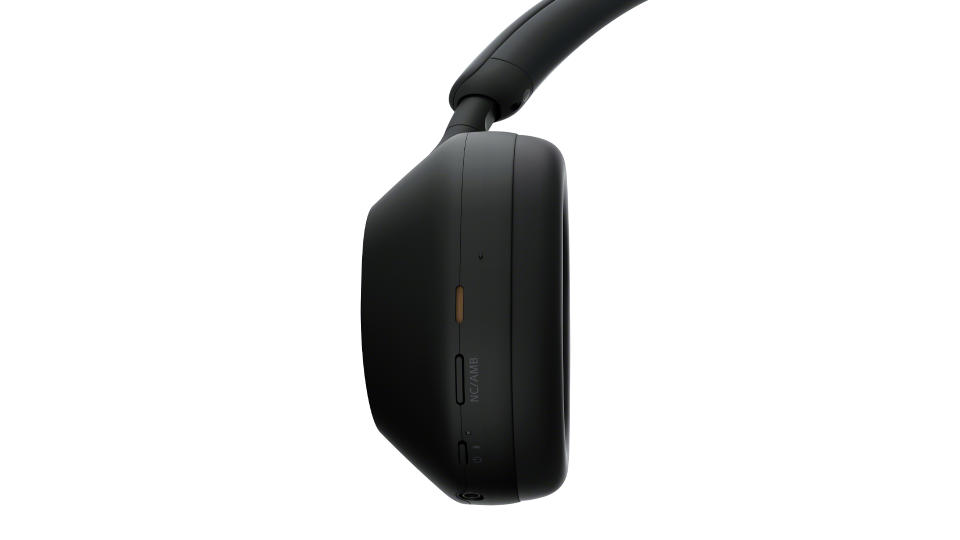
More expensive than WH-1000XM4 at launch
Bose and Sennheiser both have rivals at the money
With the current market conditions, we have seen quite a few price rises across the industry, and the Sony WH-1000XM5 haven’t managed to escape a slight increase, coming in at £380 / $399 / AU$549.
The previous-generation WH-1000XM4 arrived on the scene in August 2020 for £350 / $350 / AU$550. The Sony’s closest current rivals are the Bose 700 (£350/ $399 / AU$599), Bose QuietComfort 45 £320 / $329 / AU$499 and Sennheiser Momentum 3 Wireless (£350, $400) although all these pairs have been out for a little while now and you can find them cheaper if you shop around.
Design
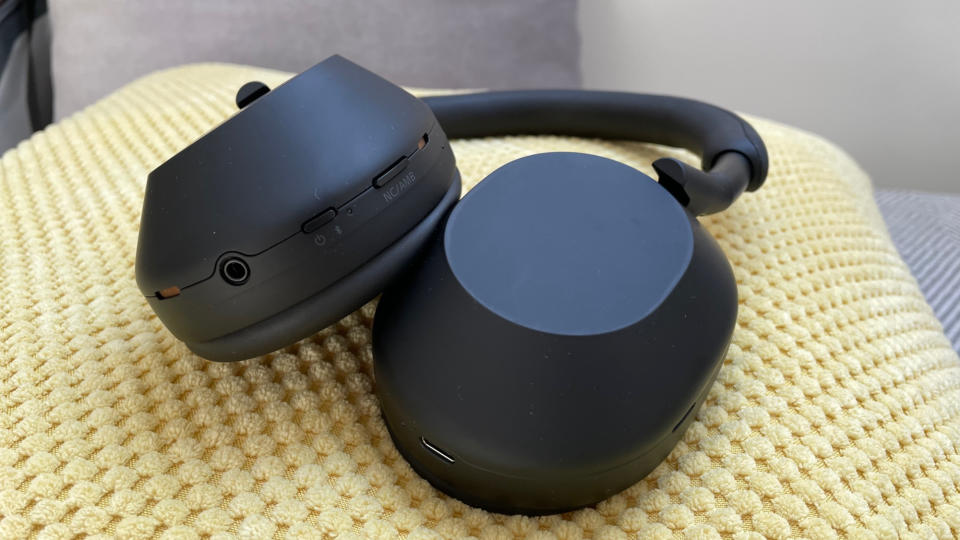
Complete revamp with new “noiseless design”
New 30mm carbon fibre driver
Feel less premium than WH-1000XM4, Bose 700
The design changes made to the Sony WH-1000XM5 are significant. Sony refers to the new look as a “noiseless design” which has seen the company attempt to create a slimmer, more seamless pair of headphones by reworking those areas that can contribute to wind noise. This has led to smoother, sweeping lines and less aggressive edges. Importantly, a number of the joints and hinges that allow the XM4’s earcups to be folded away have also been given the boot.
As a result, the Sony XM5 headphones simply fold flat, like the Bose Noise Cancelling Heaphones 700, but don't fold any smaller. It’s bad news to those of us who like to fold their headphones into a ball and fling them in a rucksack without a second thought. Immediately the Sonys feel a bit more vulnerable, and we feel obliged to use the supplied carry case, which, even though it has also been revamped, still takes up valuable space.
Not only do the WH-1000XM5 look very different (and, dare we say, cheaper) than previous generations, they also feel different. In-hand they feel lighter although the scales suggest there are only four grams between them and the XM4s (254g vs 250g).
Sony WH-1000XM5 tech specs
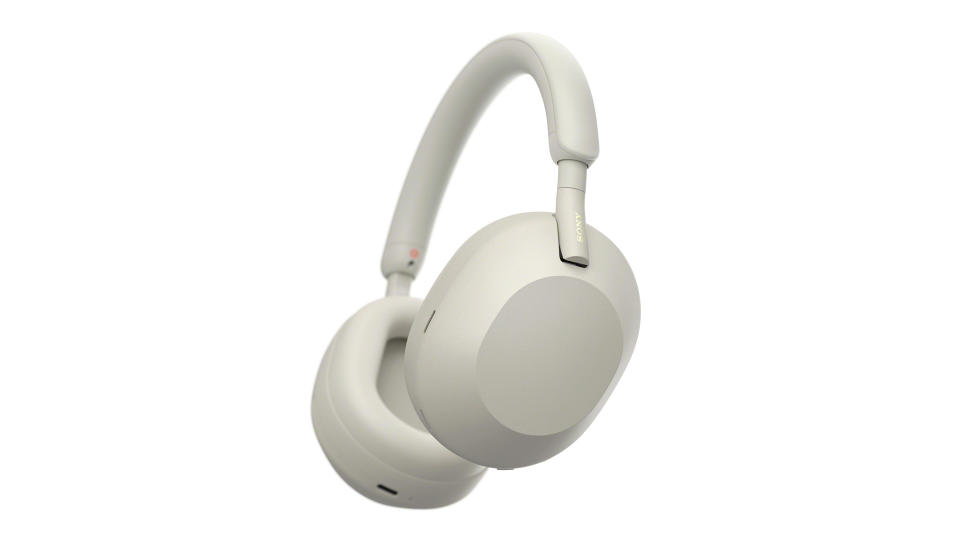
Bluetooth SBC, AAC, LDAC
Battery life 30hrs
Charging USB-C
Transparency mode Yes
Built-in mic and controls Yes
Finishes Black, Platinum Silver
Weight 250g
The plastics used are nice to touch, even if the older model still feels a bit more premium. They are made predominantly from Acrylonitrile Butadiene Styrene (ABS), a material formed by taking certain car parts made in the US and Japan, recycling and refining them and blending them with mica to get that final finish. It’s a material that was first used on Sony’s innovative LinkBuds wireless earbuds.
The headband section now employs ABS sliders instead of metal bands to adjust the fit which we think work rather well. The way the sliders kick out at the bottom means they do protrude a little, and we wonder if Sony could have trimmed a little off the edges just to smooth out their profile. But that’s a minor thing.
A section of memory foam in the middle of the headband helps with support and comfort. The band is completely covered in a new synthetic leather that also covers the memory-foam earpads. It’s soft and smooth to the touch. Comfort levels are up there with the best and the Sonys deliver just the right amount of clamping force, so they feel secure without threatening to crush our ears.
Besides the aesthetic changes, there has also been a significant component change under the hood. The 40mm driver used in the WH-1000XM4 has been replaced with a new, 30mm carbon fibre composite dome that has been specially designed to be lightweight and extremely rigid.
Noise cancelling
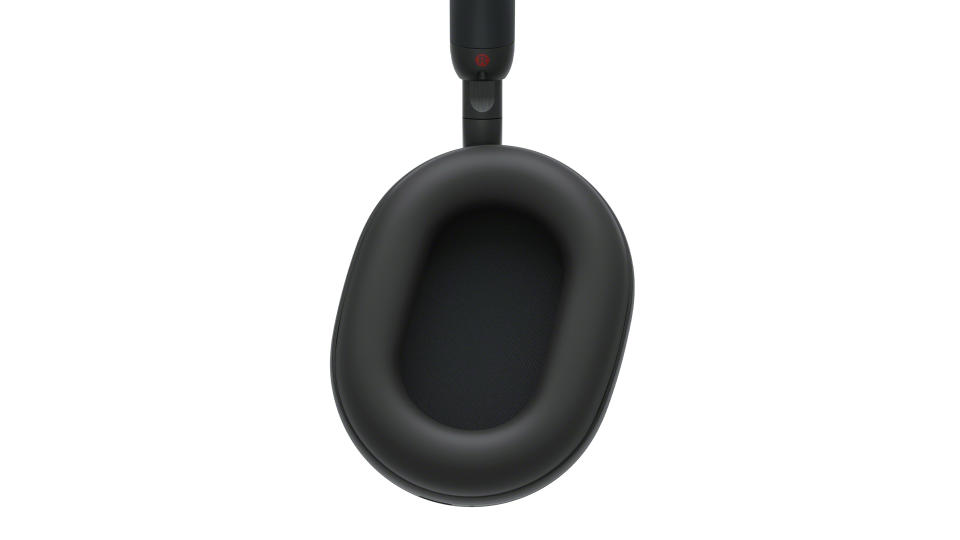
Powered by same Integrated Processor V1 as used on WF-1000XM4
Automatic noise-cancelling optimisation for the first time
Still up there with the class leaders at the money
Sony’s noise-cancelling technology has consistently wowed us in recent years, and once again, it is claiming that the WH-1000XM5 deliver the best in the business. After focusing on low-frequency noise in previous models, this time Sony has attempted to improve noise cancellation further up the frequency range in the XM5.
To help it achieve this, Sony has included the Integrated Processor V1 that first appeared on its WF-1000XM4 wireless earbuds. It has also upped the number of microphones used on the WH-1000XM5 to eight (from four in the XM4) and claim to have improved the tech inside the headphones responsible for identifying noise.
On previous generations of the WH cans, you would have to run Sony’s NC Optimiser before changing locations to make sure you were getting the best noise-cancelling possible. Now, the XM5 headphones automatically optimise the noise-cancelling as you move around. It’s done in conjunction with Sony’s Headphones app and the Adaptive Sound Control feature, which track where you are wearing the headphones. Alternatively, you can flick between noise-cancelling and the headphones’ Ambient mode by tapping the corresponding button on the edge of the left earcup.
And once again Sony generally impresses on the noise-cancelling front. They’re among the class leaders when it comes to isolating us from constant drones and noises within train and underground carriages. They also help cut out loud conversations in crowded spaces that you don't want to be part of.
Surprisingly, these headphones aren’t quite as consistent as the previous generation when dealing with variable sounds like general traffic noise. This effect is more a curiosity than a serious problem.
Features
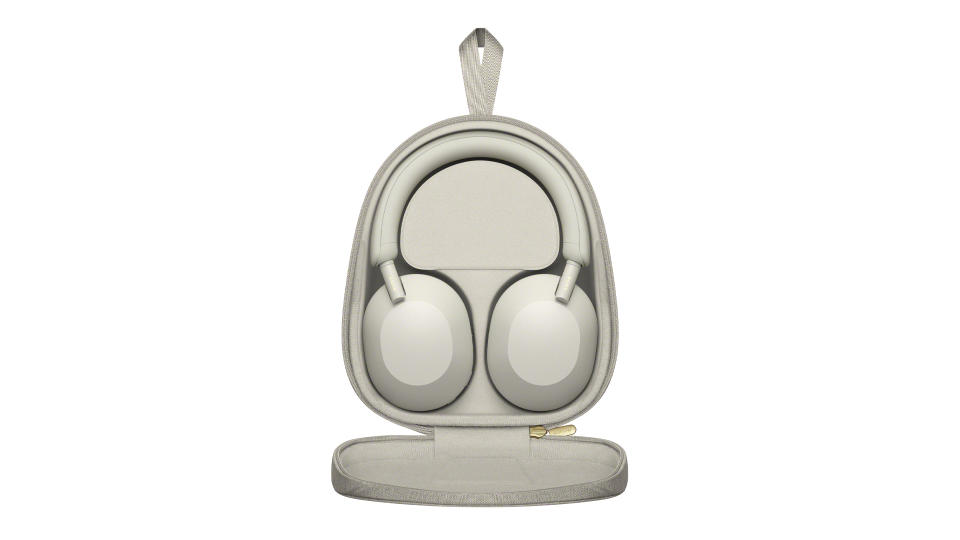
DSEE Extreme engine upscales compressed music
'Speak to Chat' tech for quick conversations
Improved ‘Wearing Detection’
A lot of the features of the WH-1000XM5 have carried over from the XM4. Sony’s DSEE Extreme engine is here to (claim to) upscale compressed music to near hi-res quality. The headphones are also compatible with Sony’s LDAC technology, which allows streaming of high-quality audio from compatible devices at bitrates higher than conventional Bluetooth (there’s no aptX or aptX HD support).
Quick Attention allows you to lower the volume and have a conversation by covering the right earcup with your hand. While with ‘Speak to Chat’, the Sonys sense when you start talking, pause playback and engage the ambient sound mode. We have used the feature on the XM4 and on the XM5 it works reasonably well – indeed, the delay between us starting to talk and the headphones switching into action seems to have been shortened slightly.
Sony claims its ‘Wearing Detection’ feature has been improved for the WH-1000XM5 too. The headphones detect when you take them off and automatically pause your music or video – and then restart it as soon as you put them back on. Key to this is a proximity sensor in the left earcup; this used to be visible on the old model but is now hidden out of sight. Sony says the updates reduce the chances of playback starting accidentally. During testing we are surprised by just how quickly the XM5 stop and start and how much this feature can add to the user experience.
One Sony feature we are delighted to see return is the ability to pair the WH-1000XM5 to two devices simultaneously. It can come in extremely handy if, say, you are listening to audio from a laptop but need to be connected to a mobile phone so you don’t miss any calls. Having this ability can be a godsend and it works seamlessly enough, once you have enabled the feature in the Headphones app. Be aware, though, that you can’t use this feature and stream music wirelessly using LDAC at the same time; you need to pick one or the other.
Sound quality

Hugely musical, and entertaining sound
More detailed than the WH-1000XM4
Excellent sense of rhythm
The WH-1000XM5 possess all the elements that have made the previous generations class-leaders at the money, including that effortlessly musical sound. But this latest generation manages to deliver even greater clarity and a more open presentation. It’s actually quite a jump.
With low frequencies, the WH-1000XM5 also display a newfound precision. It’s not that the previous model didn’t deliver, but the WH-1000XM5 make even the XM4s sound a little thick in the lower mids and bass. The new headphones expose greater detail and can differentiate between notes more easily.
Move higher up the frequency range and these Sonys continue to extract more information thanks to an extra sense of clarity. Notes are also dispatched with unerring precision – the XM5 headphones don't miss a beat when it comes to timing.
The first test track on our playlist is Duel of the Fates from The Phantom Menace OST. This is a rousing classical track and, from the moment the choir puts the wheels of the song in motion, you can hear the Sonys conveying dynamic shifts without any hesitation.
Strings and woodwind instruments drive the track along, the Sonys carefully switching from the frantic, frenzied action to the quieter moments with a delicate touch. They do a great job of tracking and dissecting the timpani roll in the middle of the track – a section that is tough to follow on headphones with a richer balance.
Billie Eilish’s Bad Guy isn’t the most complex of tracks for the WH-1000XM5 to handle, but it does allow the Sonys to flex their muscles. There’s a real sense of drive and weight to the drums, but the XM5 also manage to keep edges clean and pristine which makes their rise and fall even more dynamic. The Sonys do a great job of rendering Eilish’s delicate yet very deliberate stop/start vocal – another example of the expert timing on display.
We finish with an intimate performance of Green Day’s Good Riddance (Time Of Your Life) and the WH-1000XM5 really do a great job of capturing the crispness and precision of Billie Joe Armstrong’s vocal and guitar play. You can picture his fingers and the force with which each string is plucked and the natural tone of the string arrangement as it sweeps in midway through the song strengthens the emotional connection with the listener. Just as it should.
Sony WH-1000XM5 vs Bose 700: which are best?
B&W Px7 S2e vs Sony WH-1000XM5: which ANC headphones are for you?
Call quality
Noise reduction and wind-noise reduction tech included
The best call quality we've experienced from wireless Sony over-ears
Besides noise-cancelling, Sony has also gradually improved the call quality of its WH-1000 range over the years. And the XM5 headphones deliver the best experience so far. They feature Sony’s Precise Voice Pickup technology, which uses four beamforming mics and AI-powered noise-reduction, plus wind-noise reduction to help your calls sound as clear as possible. The combination of all these technologies means your voice comes through the WH-1000XM5 clearly and without distortion. When we use the WH-1000XM5 for a call, the Sonys do a great job of suppressing general noise and gusts of wind that can threaten to drown you out when using lesser headphones. One of the best headphones with a mic we've tested.
Battery life
30 hours with Bluetooth and ANC, 40 hours with Bluetooth
Ten minute charge adds five hours of playback
Battery life is still a substantial 30 hours with Bluetooth and noise-cancelling enabled. Turn off the latter and the WH-1000XM5s will squeeze out 40 hours - an increase of two hours compared with the XM4. A ten-minute charge should give you five hours of battery life, while a quicker USB PD charger (not included) can up the ante to three hours in just three minutes.
Tester's notes
Part of the testing process is evaluating the Sony WH-1000XM5 in a number of key areas and comparing them to key rivals around the same price point. This allows us to build up a picture for the reader of where they sit in their specific category. Our findings (ratings out of five) are listed below.
Also consider
F.A.Q.
When did Sony release the WH-1000XM5?
Sony announced the WH-1000XM5 in May 2022, priced at £380 / $399 / AU$649.
How long does it take to charge the Sony WH-1000XM5?
It should take around three-and-a-half hours to fill the WH-1000XM5 battery from empty. A ten-minute charge should be long enough to get you five hours of battery life. A USB PD charger (not included) can charge more quickly – around three minutes should be enough for three hours of playtime.
Are the Sony WH-1000XM5 waterproof?
No. Unfortunately, the XM5 are not waterproof, nor are they sweat-resistant. According to the user manual "if water or foreign matter enters the headset, this can result in burnout or malfunction."
Can you run with the Sony WH-1000XM5?
You can but we wouldn't really place them among the best running headphones for a couple of reasons. The Sony's aren't waterproof (or sweat-resistant) and we feel the clamping force, while comfortable, isn't really strong enough to keep them in place during vigorous exercise.
Sony XM5 top our list of the best ANC headphones
